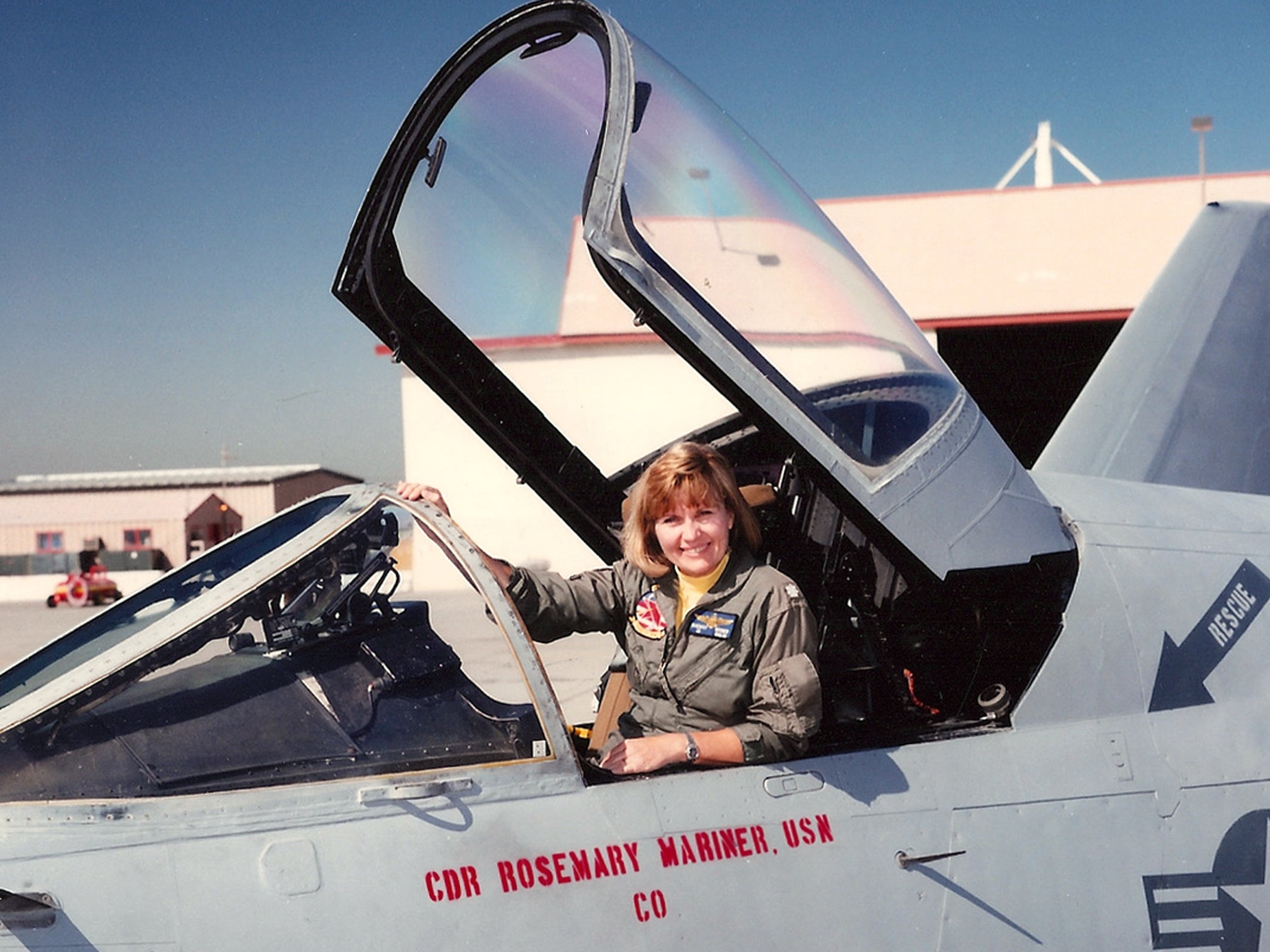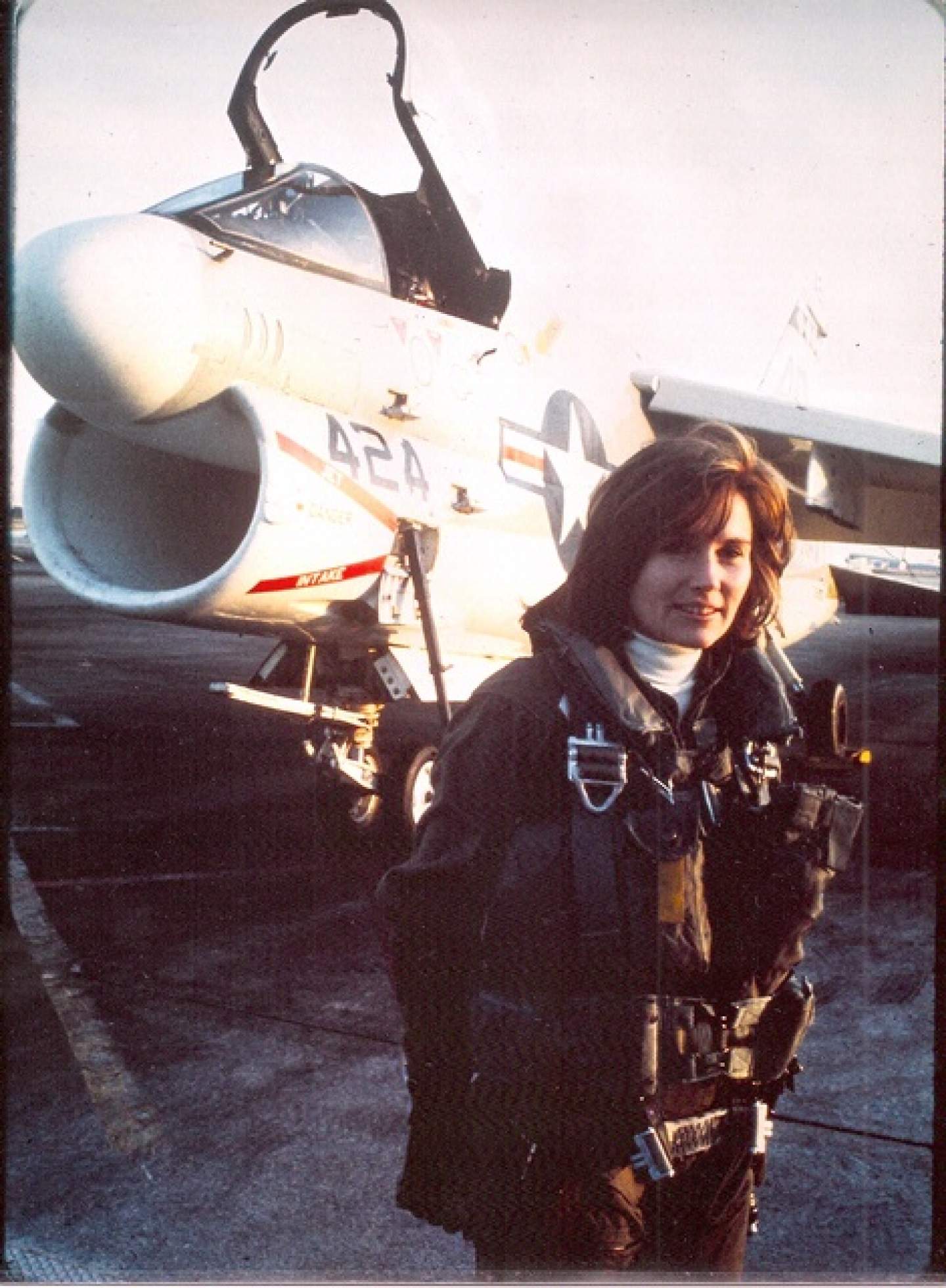Rosemary Mariner: First woman to pilot a US fighter jet and trailblazer for equal rights in the armed forces
Rising to the rank of captain, the fighter pilot overcame obstacles and prejudice at every stage of her career

Your support helps us to tell the story
This election is still a dead heat, according to most polls. In a fight with such wafer-thin margins, we need reporters on the ground talking to the people Trump and Harris are courting. Your support allows us to keep sending journalists to the story.
The Independent is trusted by 27 million Americans from across the entire political spectrum every month. Unlike many other quality news outlets, we choose not to lock you out of our reporting and analysis with paywalls. But quality journalism must still be paid for.
Help us keep bring these critical stories to light. Your support makes all the difference.
Captain Rosemary Mariner’s life was a life of firsts. In 1972, aged just 19, she was the first woman to graduate from the aeronautical programme of her university, Purdue, in West Lafayette, Indiana.
Less than two years later, she became one of the first women to earn her wings as a United States naval aviator. And in 1974, she was the first female pilot to fly a US fighter jet. At every stage of her career she had to break down gender barriers.
Mariner, who has died aged 65, was born Rosemary Ann Bryant in 1953 to Cecil James and Constance Bryant. She was one of three daughters.
Her father was a pilot in the US army air corps during the Second World War and later the Korean War. Her mother was a nurse in the US navy. Mariner grew up in San Diego, in the shadow of the Miramar Naval Air Station.
Despite losing her father in a tragic air accident when she was just three, Mariner developed a keen interest in aviation and took on a variety of part-time jobs – including washing aircraft – to earn money for her first flying lessons. By the age of 17, she had her private pilot’s licence.
Upon graduating in 1972 with a degree in aviation technology, Mariner joined the US navy as one of the first eight women to be selected for US navy pilot training. Speaking of her ambition to train as a fighter pilot at a time when women were still not widely welcomed in the military, Mariner told NPR, “My role models were African-American men who had led the vanguard in integration of race in the armed forces and [I] studied many of the lessons that they had to pass on.”
On entering the navy she had been mentored by the commanding officer of her first squadron, Captain Ray Lambert, who was black, in overcoming obstacles due to prejudice.

“We would get together,” she once wrote, “and if we thought something was unfair – they wouldn’t let a women land on a ship, for example – we would write a letter up the chain of command and put it on the record that we wanted that changed”.
When in 1991 retired naval officers attending an event in Las Vegas caused a scandal by harassing and groping female pilots, she was not surprised. “If you cannot share the equal risks and hazards in arduous duty, then you are not equal,” she said. “Then it’s not a big leap” for “bigots to decide that well ‘well, I can harass you and I can get away with it’”.

With the US navy, Mariner’s run of firsts continued. In 1982, she became the first female pilot assigned to an aircraft carrier when she joined the crew of the USS Lexington. By 1990, she was the first woman to command a US navy aviation squadron, leading a tactical electronic warfare squadron of 300, at the naval air station at Point Mugu in Southern California
She was promoted to captain in 1993, after the repeal of restrictions on women in combat that she had helped campaign to end.
Mariner said of the decision to allow women to fly combat missions: “In modern warfare, the emphasis is not on physical strength, but on brain power operating sophisticated weapons systems. A machine gun is a great equaliser.”
Her last military post was on the staff of the joint chiefs at the Pentagon, having gained a master’s in national security strategy at the National War College. By the time she stepped down, she had flown over 3,500 military flight hours in 15 different aircraft, clocking 17 landings on aircraft carriers.
In retirement, she lectured at the University of Tennessee’s department of History and was scholar in residence at the Centre for the Study of War and Society. Having been president of Women Military Aviators, she was a keen mentor of the women who followed in her footsteps.
Mariner died of ovarian cancer. On the day of her funeral US navy performed an all-female pilot flyover for the very first time, when the pilots from Naval Air Station Oceana in the traditional “missing man” formation in Captain Mariner’s honour.
Mariner is survived by her husband, Tommy Mariner, a retired naval commander, and their daughter, Emmalee, and her sister Libby Merims.
Captain Rosemary Bryant Mariner, US military pilot, born 2 April 1953, died 24 January 2019
Subscribe to Independent Premium to bookmark this article
Want to bookmark your favourite articles and stories to read or reference later? Start your Independent Premium subscription today.
Join our commenting forum
Join thought-provoking conversations, follow other Independent readers and see their replies
Comments